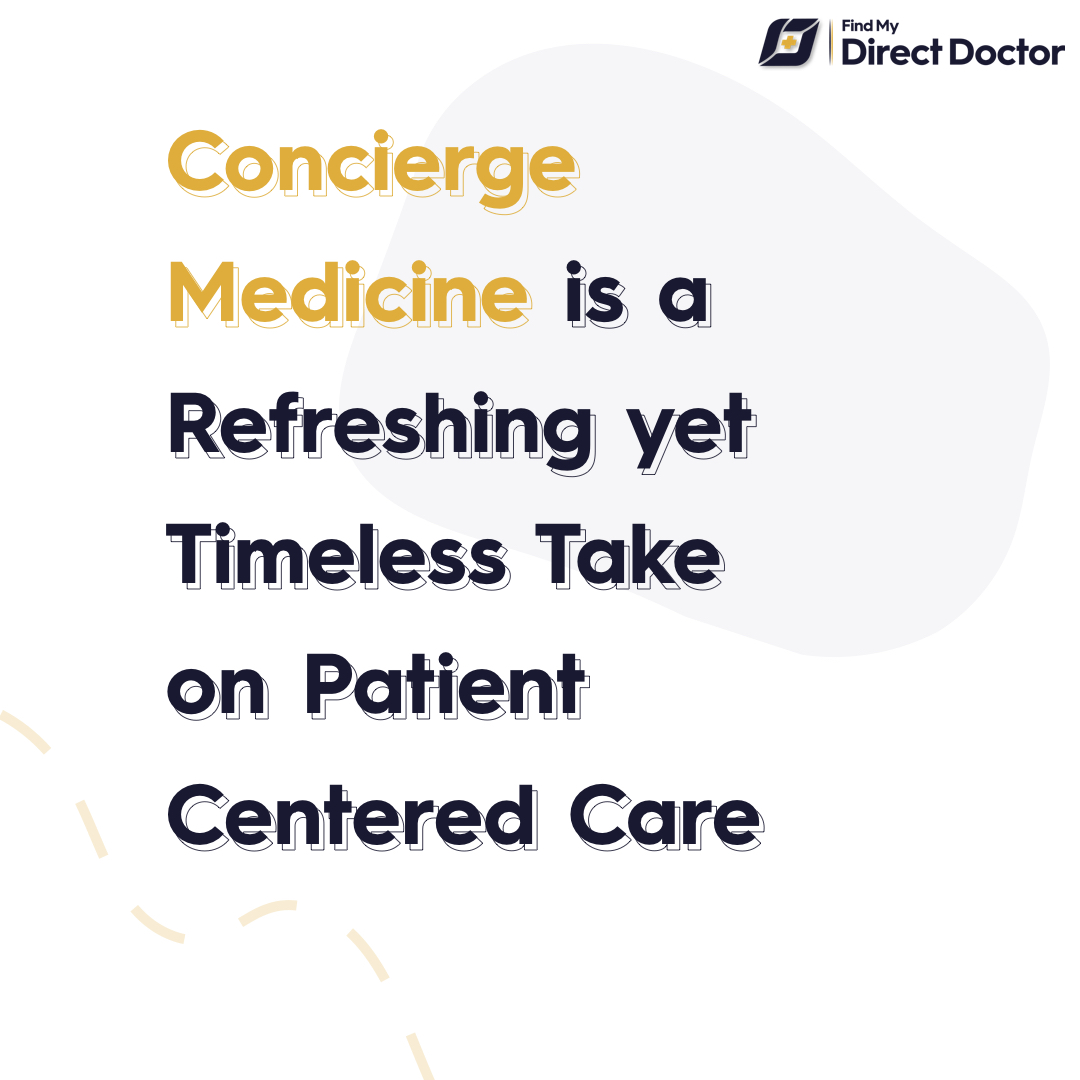



Like all other membership-based models, the concierge care model provides patients with first-rate, personalized care via a subscription fee.
These membership-based subscriptions follow a set of terms and conditions between you and your concierge doctor, including convenient payment terms that allow patients to settle fees either monthly, quarterly or annually.
If you're interested to know how concierge medicine works and how different it is from the traditional, insurance-based health care system, here are key details you should keep in mind if you are considering making the switch:

This is possible because they limit the number of patients they see to ensure enough time is devoted to every patient. In contrast to traditional primary care physicians who are frequently overworked and overbooked, concierge doctors are in charge of their own time.
Concierge doctors only see 15 patients or less each day instead of traditional primary care physicians who see at least 30 patients or more per day.
Apart from unlimited office visits, concierge doctors can also spend more time with their patients by being conveniently available. A concierge medicine subscription merits direct access to your concierge doctor’s personal line.
You can contact them for health emergencies, teleconsultations online or via mobile, or even home visits, especially when you are sick and unable to move around.
By being in touch with their concierge doctors consistently and for more extended periods, patients receive a more individualized, preventive healthcare level.
Concierge doctors can assess your complete medical history and develop long-term health management plans to keep you healthy, rather than addressing medical problems only when they get worse.
Unlimited appointments and 24/7 access to your concierge doctor’s direct line are standard benefits. However, the model of offering heavily discounted out-patient services and medicine at wholesale cost is a feature primarily associated with Direct Primary Care (DPC), not typical concierge practices that also bill insurance.
The only difference is that a concierge medicine subscription includes selecting additional premium services, which a regular DPC subscription does not.
In comparison to Direct Primary Care, which is more concerned about being cost-efficient, your concierge medicine subscription offers many added perks.
These added perks include comprehensive care and routine preventive services such as in-depth physical exams and screenings, and in some high-end practices, even coordinating and accompanying your specialist visits.
Although everyone is welcome (and encouraged) to have a concierge medicine subscription, the patients who benefit the most from this type of subscription have chronic illnesses, like hypertension or diabetes.
If you are a patient who requires more meticulous care, you will significantly benefit from having a doctor who is familiar with your entire medical history. A concierge doctor recommends and coordinates specialists whenever necessary and ensures that overall treatment and care is seamless, hassle-free, and has the patient’s well-being at heart.
Each DPC or concierge medicine practice offers different perks, payment terms, and subscription guidelines. It’s all about finding a practice that fits your price point and covers all the benefits you need.
If there’s anything concierge medicine and DPC have in common, it’s that both allow patients to settle primary care fees in a clear, upfront manner.
Much like your Netflix or Spotify subscription, patients are charged a retainer fee that on average costs anywhere from $150 to $250 per month, though some very exclusive practices can be several thousand dollars a month. This is slightly higher than DPC, which for an individual adult typically averages $70-$150 per month. Time to say goodbye to chaotic insurance billing for the services covered by your membership fee!
Concierge doctors do not usually charge copay fees every time you need to see them, although some of them continue to bill their patient’s insurance company for covered services on top of the subscription fee.
This results in two subscriptions paid by patients — the concierge medicine fee and the insurance premium. Notably, a few concierge medicine practices do not bill insurance for medical visits, as the monthly fees cover both access and primary care visits already.
Although your concierge medicine subscription already covers everything about premium primary care services, it does not include catastrophic health expenses, hospitalization services, and other subspecialty services.
This means that you still have to retain your insurance plan, albeit a much cheaper, more basic one that only covers these services as mentioned above.
A concierge medicine subscription is something you should consider getting into as a patient, as it provides top-quality direct patient care without the full intervention of intermediaries for the services covered by your fee – something that is virtually unheard of in your traditional health insurance.
Next Post